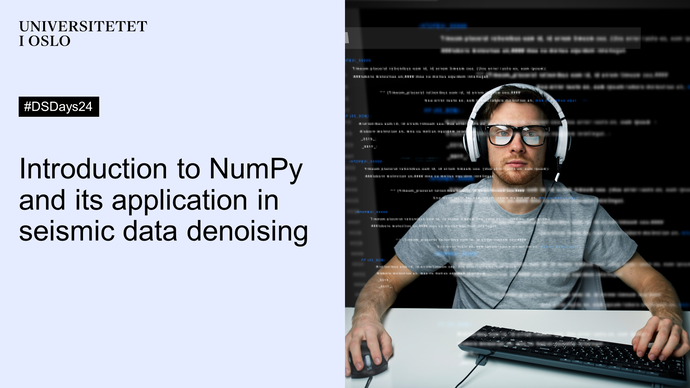Numerical Python or commonly known as NumPy by the Python programming community, is one of the most fundamental tools for Python-driven scientific research. In geosciences, most 2D and 3D geo-data such as seismic data can be loaded as NumPy arrays. Using NumPy’s various functions, these geo-data can be processed and interpreted accordingly with respect to the research objectives. In oil and gas exploration, high-resolution and high-fidelity 3D seismic data is crucial for understanding the regional geology and identifying zones of hydrocarbon accumulation. Therefore, the proposed workshop will discuss and share simple denoising techniques, including a U-Net machine learning solution, which will then be applied on open-source 3D seismic data. Participants are invited to conduct their own analysis of the two methods and share their findings.
Learning outcomes
- Participants will be able to use NumPy and its various functions for loading and manipulating 1D, 2D and 3D arrays
- Participants will understand some basic concepts on reflection seismology, acquisition, and processing.
- Participants will learn how to create and apply synthetic noise to the data.
- Participants should be able to apply conventional and U-Net-based denoising on post-stack seismic data.
- Participants are expected to conduct Python programming hands-on through the workshop.
Prerequisites
Some understanding of seismic data used in oil and gas and programming would be beneficial for the participants but it is not a deal-breaker.
Target audience
BSc, MSc, and early researchers, including PhDs who will use Python programming in their work. Anyone aspiring to join the oil and gas industry within the field of geoscience should also join the workshop.
Required Materials
- Laptop with Jupyter Notebook installed.
- Required Python libraries (currently TBD) will be emailed to participants in December 2023, along with a basic guide for the workshop, including where to download data, some fundamental knowledge, etc.
